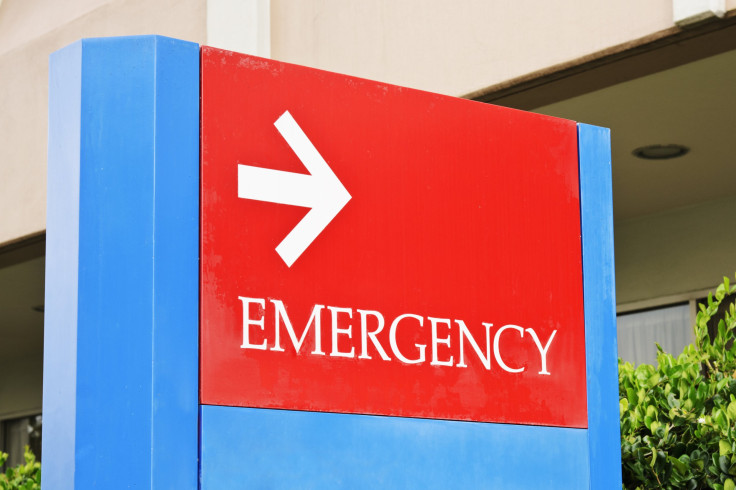ER Visits 2016: Top 10 Reasons For Going To Emergency Department

Across the U.S., 136.3 million people are taken for emergency room, or ER, visits every year, according to Centers for Disease Control and Prevention (CDC). Of these, over 40 million are treated for injuries and 2.1 million result in admission to the critical care unit.
People visit the ER for a number of reasons including allergic reactions, miscarriages, fevers and even earaches. Depending on the seriousness of the illness or injury, a person needs to decide how urgently he/she requires medical attention. The cost of treatment at the emergency department of a hospital can be two or three times compared to a visit to a regular clinic. However, if the illness is serious enough, it is recommended to visit an emergency room right away.
Following are the most common reasons for visits to emergency departments gathered from ER Centers of America and Victoria ER:
Chest pains: A feeling of tightening in the chest or pain in the chest can result in an ER visit. Although some of the visits are not required, health experts say it is better to be safe than sorry — especially for those who have heart problems.
Skin infections: Rashes, abnormal skin reactions often require emergency department visits so that doctors can identify if the infections are serious.
Cuts and contusions: Minor cuts can be treated at home, but deep cuts often require ER visits for a tetanus immunization. The same goes for contusions and head trauma.
Injuries related to bone or sprain: Bone injuries such as fractures and sprain injuries such as torn or stretched ligaments are one of the most common reasons for an ER visit.
Respiratory issues: Troubled breathing, serious coughing and high fever can land people up in the ER.
Toothache: Toothaches can be extremely painful because of which people may turn to the emergency department.
Foreign objects in the body: Items such as tiny magnetic balls in ear or coins inside the body can lead to ER visits.
Back pain: People often think that backaches will subside in a few days. However, if ignored, back pain can actually cause serious trouble affecting body movement.
Headaches: Although regular headaches are not treated in the ER, people with chronic migraines are given medical attention in the emergency department.
Abdominal pains: Mild stomach ache or abdominal pain can be cured with a regular visit to a doctor. However, it is recommended to go to the emergency department if you have severe abdominal pain.



























